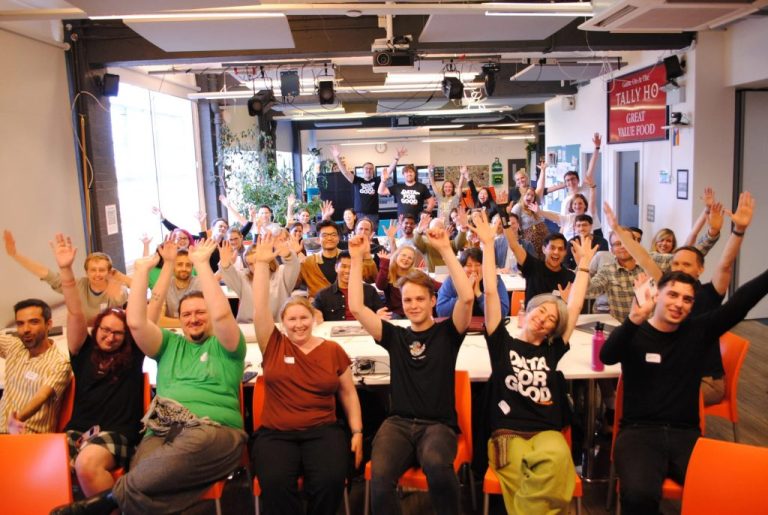Ukraine Leverages Clearview AI for Identifying Assailants and Honoring the Fallen
Ukraine Utilizes Clearview AI for Identification Amid Conflict
Ukraine is actively employing Clearview AI’s facial recognition technology to identify Russian aggressors and recognize Ukrainian individuals who have tragically lost their lives in the ongoing conflict. Hoan Ton-That, CEO of Clearview AI, disclosed to Reuters that the Ukrainian defense ministry commenced using this software recently.
Clearview AI’s facial recognition platform has sparked debate, yet it is undeniably potent; it draws from billions of publicly available images online to facilitate the identification of individuals. Notably, the service claims to possess over two billion images sourced from the Russian social network VKontakte alone. Ton-That communicated to Ukrainian officials that the software could aid in identifying covert Russian agents, reuniting refugees with their families, and combating misinformation.
Additionally, reports indicate the software’s utility extends to scenarios involving facial injury or decomposition, enhancing its effectiveness in challenging circumstances. Currently, Ukraine is utilizing this technology free of charge, a courtesy that hasn’t been offered to Russia, which faces widespread condemnation for its unlawful invasion and increasingly violent tactics that are under scrutiny for potential war crimes.
In light of these actions, numerous companies have chosen to suspend or restrict operations in Russia while providing various forms of support to Ukraine, including in the realms of cybersecurity and satellite internet services. Clearview AI’s involvement may offer a beneficial opportunity for public relations, considering the company’s history of criticism regarding its data collection practices.
The ethical implications of Clearview AI’s operations cannot be overlooked. Concerns arise regarding the company’s reliance on mass data harvested from various sources online. Furthermore, its legal counsel, Tor Ekeland, previously contended that common law does not establish a privacy entitlement concerning one’s facial image. Ekeland garnered attention for representing clients in controversial circumstances, further complicating Clearview AI’s public image.
Regulatory bodies worldwide have increasingly scrutinized Clearview AI. In November 2021, the UK’s Information Commissioner’s Office assessed a potential fine exceeding £17 million against the company and mandated the destruction of personal data collected from British citizens. Similarly, the OAIC in Australia reached a consensus, instructing Clearview AI to eliminate any biometric data obtained from Australians.
Clearview AI has pointed out that police utilization of its facial recognition services surged by 26% following the Capitol riots in the United States. The company’s efforts in Ukraine could present a favorable case study; however, whether this will sufficiently counterbalance the ongoing privacy concerns is yet to be determined.
To further explore developments in artificial intelligence and big data, consider attending the upcoming AI & Big Data Expo events scheduled for May 11-12, 2022, in Santa Clara, September 20-21, 2022, in Amsterdam, and December 1-2, 2022, in London.
NVIDIA Helps Germany Lead Europe’s AI Manufacturing Race
NVIDIA is paving the way for Germany to become a frontrunner in Europe’s AI manufacturing. The collaboration emphasizes cutting-edge AI technologies and their integration into Germany’s industrial backbone.
MedTech AI, Hardware, and Clinical Application Programmes
Recent advancements in MedTech AI highlight the intersection of hardware innovations and clinical applications designed to enhance healthcare outcomes.
The AI Execution Gap: Why 80% of Projects Don’t Reach Production
Despite the growing enthusiasm for AI technologies, a staggering 80% of projects fail to make it to production due to various barriers in execution and scalability.
Teachers in England Given the Green-Light to Use AI
In an important development for education, teachers in England have received the approval to incorporate AI tools into their classrooms, enhancing learning experiences.
The Role of Machine Learning in Enhancing Cloud-Native Container Security
Cloud-native applications are revolutionizing the way organizations utilize containers for deployment and management in cloud environments. Machine learning plays a critical role in fortifying the security of these containers. It empowers businesses to identify vulnerabilities proactively, ensuring a more robust defense against threats.
Outsourcing development tasks has also gained traction within tech circles. Partnering with expert developers enables organizations to focus on core competencies while ensuring high-quality outputs in software solutions.
Education, Legislation & Government
Teachers in England have received approval to incorporate AI into their teaching methods. The use of artificial intelligence is expected to enhance educational experiences and improve learning outcomes.
Artificial Intelligence Update
AI’s impact on the cryptocurrency sector continues to grow, shaping industry trends and influencing investment strategies.
Insights from Sam Altman at OpenAI
Sam Altman states that we are entering an era of superintelligence, highlighting the transformative potential of advanced AI technologies across various fields.
Stay updated with our latest premium content and tech news delivered directly to your inbox.
Categories
- Applications
- Companies
- Deep & Reinforcement Learning
- Enterprise
- Ethics & Society
- Industries
- Legislation & Government
- Machine Learning
- Privacy
- Research
- Robotics
- Security
- Surveillance
- Sponsored Content
Other Publications
Developer |
IoT News |
Edge Computing News |
MarketingTech |
CloudTech |
The Block |
Telecoms |
Sustainability News |
TechHQ |
TechWire Asia
Permissions (Required)
By submitting your email, you agree to our Terms and Privacy Notice.
This field is for validation purposes and should be left unchanged.







